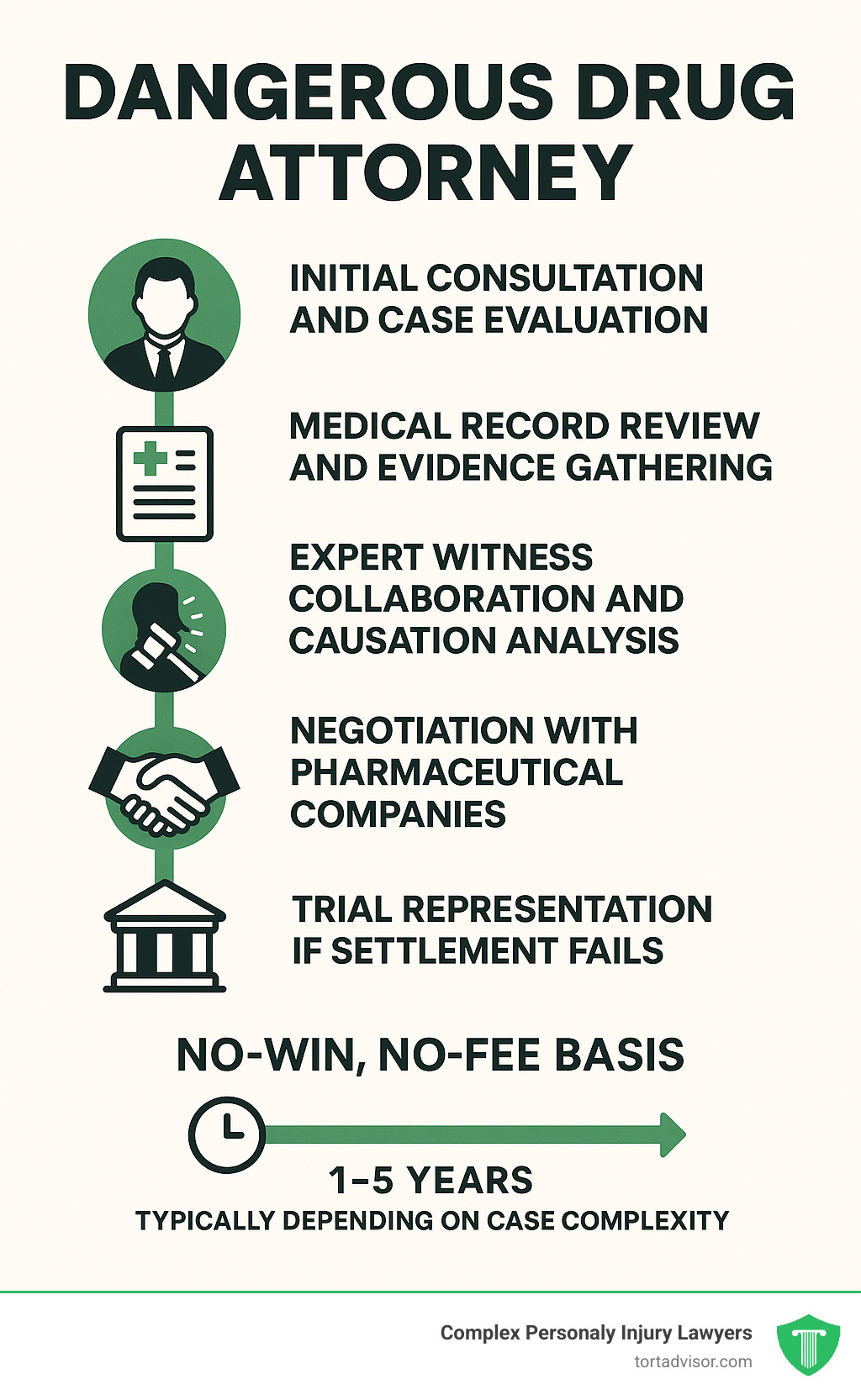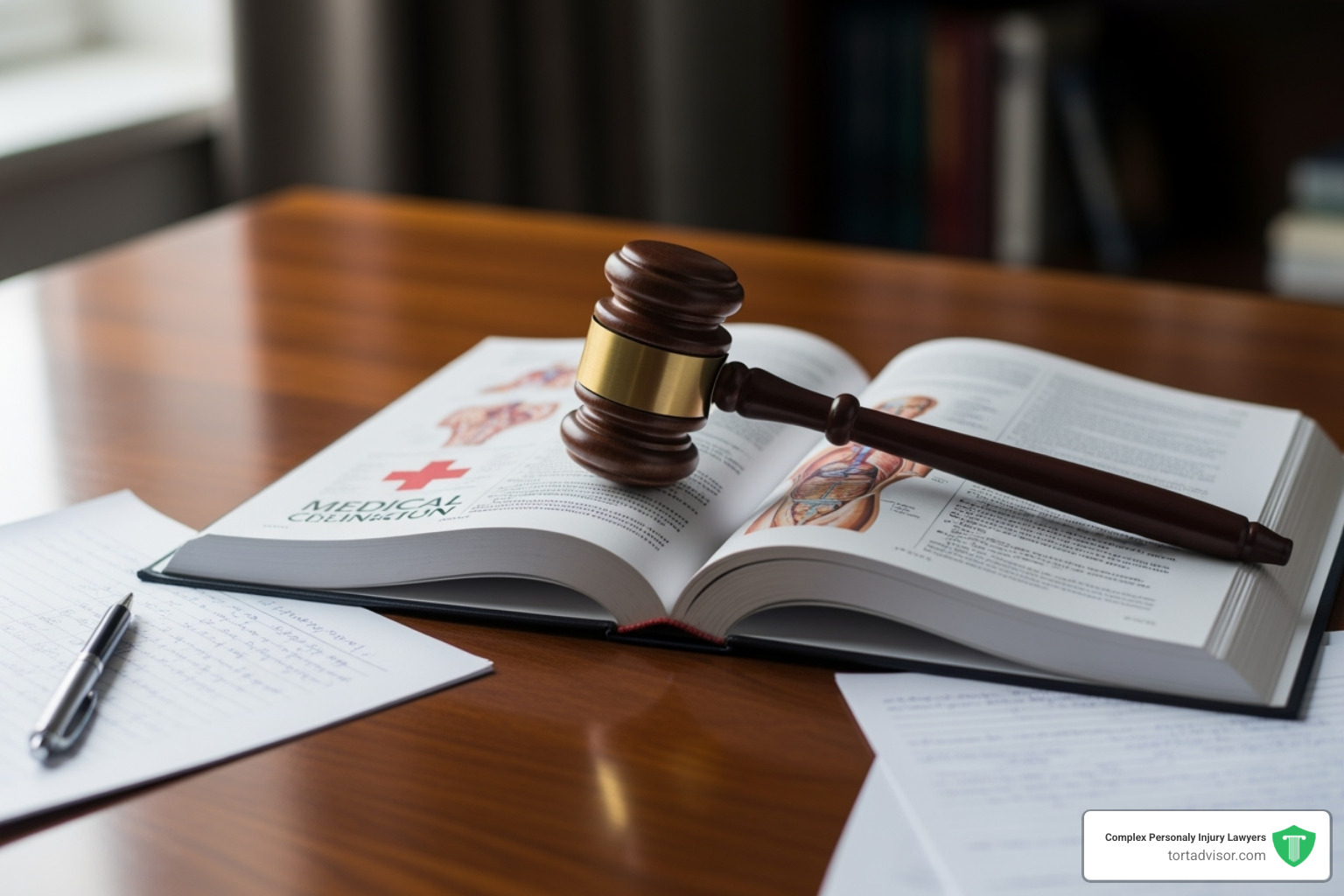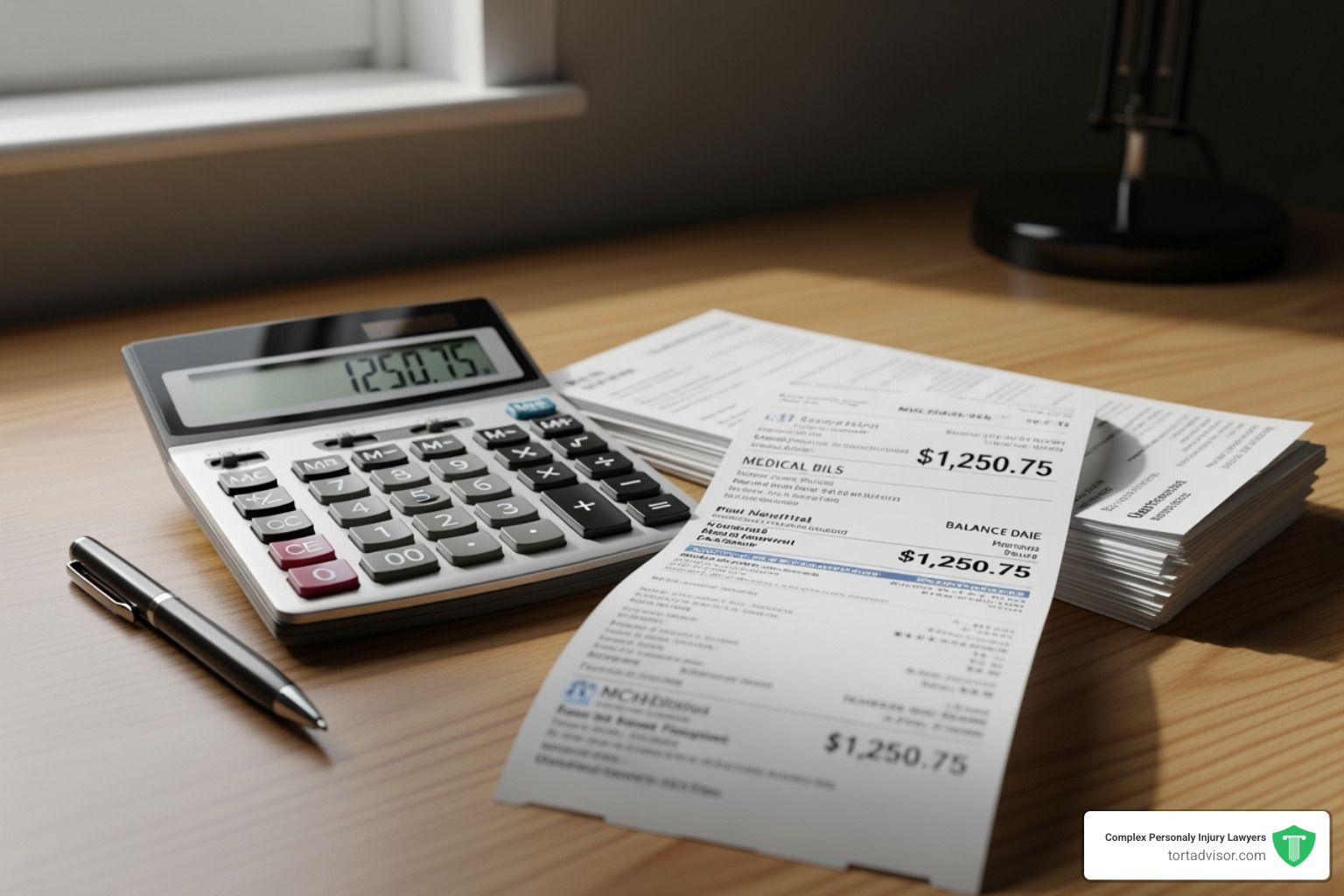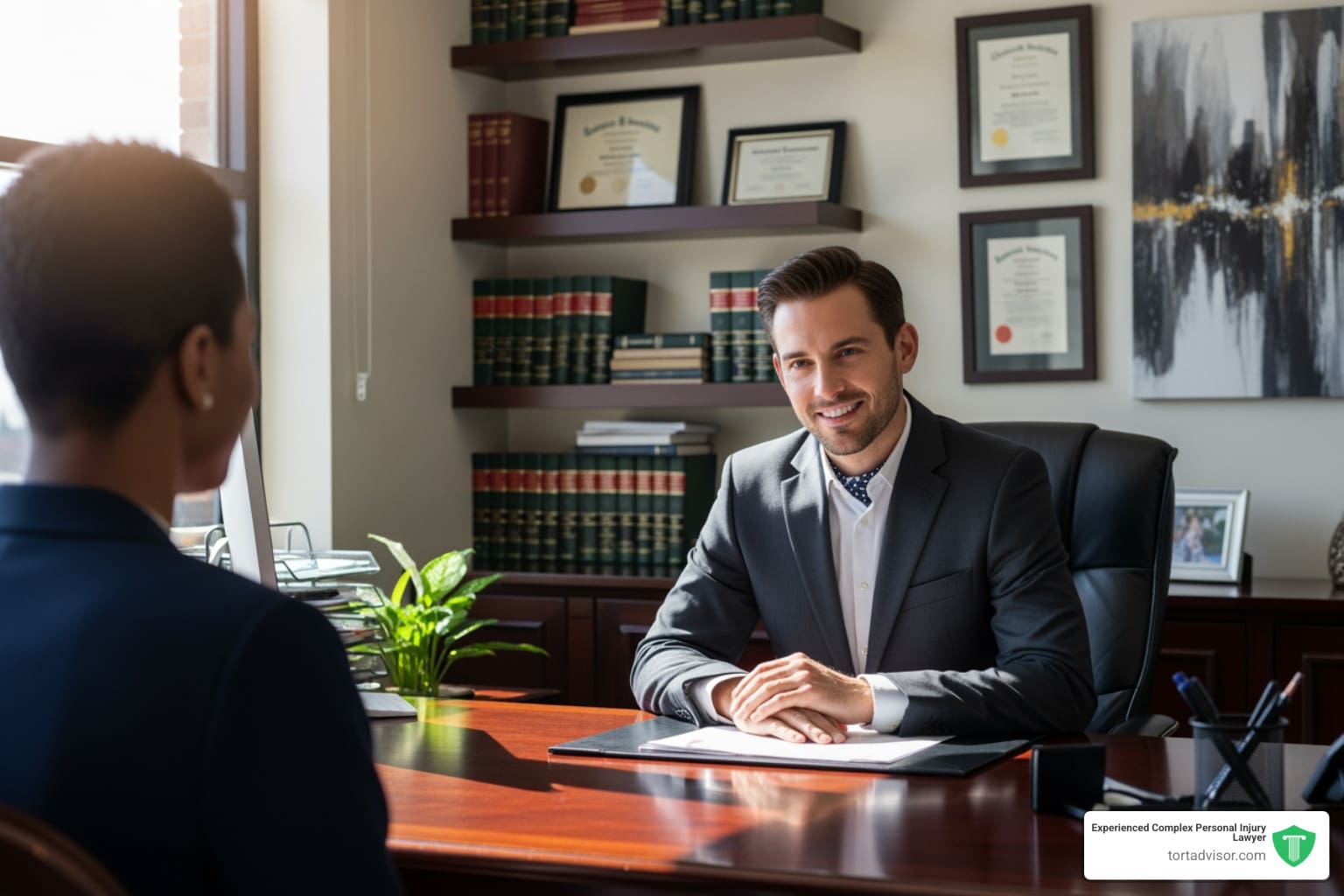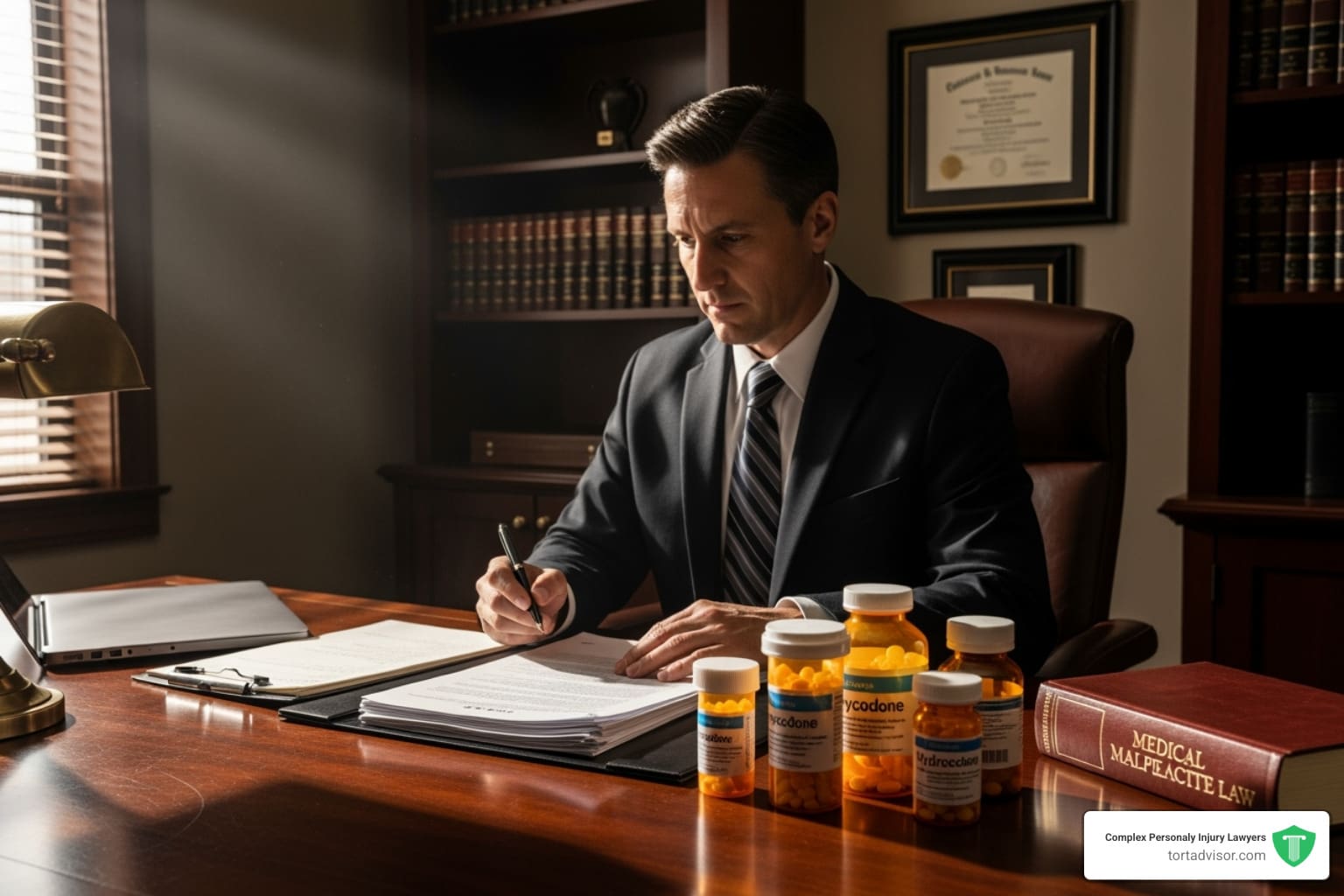


Why Finding the Right Dangerous Drug Attorney Can Make or Break Your Case
When a medication you trust causes serious harm, it’s a profound betrayal. Unfortunately, dangerous drug attorney cases are increasingly common as pharmaceutical companies sometimes prioritize profits over patient safety. If a prescription or over-the-counter drug has injured you, understanding your legal rights is the first step toward justice.
What a Dangerous Drug Attorney Does for You:
- Investigates the link between your injury and the medication
- Gathers crucial evidence from medical records and company documents
- Proves the drug caused your specific injuries
- Negotiates with powerful pharmaceutical and insurance companies
- Represents you in court if a fair settlement isn’t reached
- Works on a contingency basis, meaning you pay nothing unless they win
The statistics are alarming. Over 128,000 Americans die from prescribed medications each year, and more than 50% of all pharmaceutical drugs in the U.S. have harmful effects despite FDA regulation. These figures underscore the need for experienced legal help when companies fail to warn consumers about serious risks.
“When big pharmaceutical companies place profits above people’s safety, individuals suffer incredible injuries,” notes one legal expert. Manufacturers may hide side effects, conduct poor safety testing, or rush products to market, leaving patients with devastating consequences.
Navigating a complex system—be it software or the legal world—requires a specialist. Just as you’d want an expert architect for a skyscraper, victims of dangerous drugs need attorneys with deep pharmaceutical litigation experience to challenge billion-dollar corporations.
What Constitutes a Dangerous Drug and What Are Your Rights?
Not every side effect makes a drug legally “dangerous.” A drug becomes “defective” when it causes harm that consumers weren’t properly warned about, or when the manufacturer failed to make it reasonably safe. This distinction is the foundation of your legal rights to hold pharmaceutical companies accountable.
What Makes a Drug Legally Defective?
A dangerous drug attorney looks for specific defects that create legal liability. These generally fall into three categories.
Design defects mean a drug is inherently unsafe, even if made correctly. This occurs when a safer alternative existed but was not used.
Manufacturing flaws happen during production. The design is safe, but errors like contamination or incorrect dosages make specific batches dangerous.
Inadequate warnings are the most common basis for these lawsuits. Companies must warn doctors and patients of all known risks. Hiding side effects, downplaying dangers, or failing to update warnings as new information emerges creates liability.
Many are surprised to learn that FDA approval doesn’t guarantee safety. Over 50% of drugs in the U.S. have injurious effects despite FDA regulation. The approval process isn’t foolproof, and problems arise when manufacturers manipulate data or when issues only appear after widespread use.
In these cases, the legal principle of strict liability often applies. This means you only need to prove the defective product caused your injury, not that the company was negligent, which helps level the playing field against large corporations.
We recommend researching medications using credible sources like Medline Plus.
Common Side Effects and Injuries in Drug Lawsuits
Serious drug injuries are often life-altering or fatal. Common injuries cited in lawsuits include:
- Organ damage: The liver and kidneys are particularly vulnerable, potentially leading to organ failure.
- Cardiovascular events: Some drugs have been found to increase the risk of heart attacks and strokes.
- Blood clots: Certain medications can double the risk of dangerous clots that may travel to the lungs or brain.
- Cancer: Several drugs have been linked to an increased risk of bladder, liver, pancreatic, or stomach cancer.
- Birth defects: Medications taken during pregnancy can cause severe congenital disabilities in children.
- Psychological harm: Some drugs may cause severe depression, anxiety, or suicidal thoughts.
- Wrongful death: Tragically, preventable drug injuries can be fatal. Statistics show more than 128,000 Americans die from prescribed medications each year.
Drugs Frequently Involved in Litigation
The landscape of pharmaceutical litigation is always changing. Some drugs that have recently been the subject of major lawsuits include:
- Weight loss drugs: Ozempic has been linked to severe gastrointestinal issues like gastroparesis (stomach paralysis) and gallbladder problems.
- Opioid alternatives: The acidic formula of Suboxone has been alleged to cause severe tooth decay and dental problems.
- Birth control medications: Depo-Provera has been linked to bone loss and an increased risk of brain tumors.
- Baby formula: Enfamil and Similac have been linked to necrotizing enterocolitis (NEC), a life-threatening intestinal disease in premature infants.
- Blood pressure medications: Valsartan was recalled due to contamination with probable carcinogens during manufacturing.
- Pain relievers: Lawsuits allege that using Tylenol (acetaminophen) during pregnancy is linked to autism and ADHD in children.
The Role of a Dangerous Drug Attorney in Your Claim
Facing a pharmaceutical giant with armies of lawyers is an uphill battle. Their goal is to protect their bottom line by minimizing your suffering or denying your claim. A dangerous drug attorney is your champion, leveling the playing field with legal expertise, resources, and the determination to hold these companies accountable.
Without proper representation, you are easily overwhelmed. A skilled attorney becomes your advocate when you’re too sick to fight, handling the complex legal battle so you can focus on your health and recovery.
How a Dangerous Drug Attorney Builds a Winning Case
Building a case against a drug company requires a methodical approach and deep knowledge of both medicine and law.
- Case Investigation: Your attorney digs into your medical history, the drug’s development, and patterns of similar injuries to uncover crucial details.
- Evidence Gathering: They collect all relevant documents, including medical and pharmacy records, and seek internal company communications or clinical trial data that may reveal what the manufacturer knew.
- Proving Causation: A critical step is establishing a clear, scientific link between the drug and your injuries. This often requires extensive analysis and expert testimony.
- Medical Expert Collaboration: Your attorney works with pharmacologists, toxicologists, and other physicians who can explain complex medical science to a judge and jury, turning your experience into compelling evidence.
- Calculating Damages: They work with economic experts to quantify all your losses, including medical bills, lost wages, and future earning capacity, as well as the impact on your quality of life.
- Negotiating Settlements: Your lawyer shields you from lowball offers, ensuring any settlement truly reflects the full value of your claim.
- Trial Representation: If a fair settlement isn’t reached, your attorney has the skill to present complex scientific evidence compellingly to a jury.
Navigating the Complexities of Pharmaceutical Litigation
Pharmaceutical litigation is a specialized field with high stakes and formidable opposition. It requires attorneys who understand the unique legal and scientific landscape.
- Holding Manufacturers Accountable: Your attorney challenges company defenses, focusing on what they knew and failed to disclose.
- Fighting Insurance Companies: Experienced lawyers know how to counter insurance company tactics designed to minimize payouts.
- Understanding Scientific Evidence: A successful case often hinges on interpreting clinical trial data and pharmacological mechanisms—knowledge that general practice lawyers lack.
- Managing Deadlines: Strict time limits (statutes of limitations) can bar your claim forever. An attorney ensures all deadlines are met.
- Communicating with You: A good attorney keeps you informed and supported throughout the process.
The complexity of this field is why general practice lawyers often refer these cases to specialists. For an example of this focused expertise, you can find more info about Depo Provera Injury Lawyer services. Your dangerous drug attorney is more than a lawyer; they are your advocate for justice in a system often tilted in favor of corporate interests.
Securing Compensation and Justice: The Lawsuit Process
Filing a lawsuit serves two vital purposes: securing the financial compensation you need to rebuild your life and holding negligent pharmaceutical companies accountable to prevent future harm. The costs of a drug-related injury—from medical bills to lost wages—can be overwhelming. A successful claim provides the financial stability needed to focus on healing.
Evidence Needed for a Strong Dangerous Drug Lawsuit
Building a case against a pharmaceutical giant requires rock-solid evidence. A skilled dangerous drug attorney knows what’s needed and how to get it.
- Medical Records: These documents provide a timeline of your health before and after taking the drug, detailing your diagnosis, treatments, and prognosis.
- Prescription History: Pharmacy and doctor records establish that you took the medication as prescribed, including dosage and duration.
- Doctor’s Testimony: Your treating physicians can explain in medical terms how the drug caused your injuries.
- Expert Witness Reports: Specialists like pharmacologists and toxicologists provide scientific analysis linking the drug to your condition and can testify whether the manufacturer should have known the risks.
- Pharmaceutical Company Documents: Internal emails, research data, or marketing plans can be a “smoking gun” that proves corporate negligence.
- FDA Communications: Official warnings, recalls, or letters from the FDA provide strong support for your claim. You can check for alerts on the FDA’s MedWatch site.
Types of Compensation You Can Seek
A comprehensive lawsuit should address all the ways the injury has impacted your life. Compensation can cover several types of damages.
- Medical Expenses: This includes all past and future costs for treatment, surgery, medication, and rehabilitation.
- Lost Wages and Earning Capacity: This compensates for income you’ve already missed and for any permanent reduction in your ability to earn a living.
- Pain and Suffering: This acknowledges the physical pain, emotional distress, and reduced quality of life you have endured.
- Loss of Consortium: If your injury has negatively affected your relationship with your spouse, they may be entitled to compensation.
- Punitive Damages: In cases of extreme negligence, these damages are awarded to punish the company and deter similar conduct in the future.
- Wrongful Death Damages: If a loved one died, this helps the family with funeral costs, lost financial support, and the loss of companionship.
Key Legal Problems in Dangerous Drug Cases
Pharmaceutical lawsuits are uniquely complex, involving massive corporations and specific legal frameworks. Two critical concepts can make or break your claim: the statute of limitations and the structure of mass tort litigation. Navigating these properly is essential for a successful outcome.
The Statute of Limitations: Why You Must Act Quickly
You cannot wait forever to file a lawsuit. The statute of limitations is a legal deadline that, once passed, permanently bars your right to seek compensation.
- Time Limits Vary by State: Each state sets its own deadline for personal injury lawsuits. For example, California allows two years under California Code of Civil Procedure Section 335.1, but your state’s deadline could be different.
- The Discovery Rule: What if an injury doesn’t appear for years? The “discovery rule” often applies, meaning the clock doesn’t start until you discover, or reasonably should have discovered, that the drug caused your injury. Applying this rule requires careful legal analysis.
- Preserving Evidence: Acting quickly is also about protecting evidence. Medical records, pharmacy logs, and company documents can be lost or destroyed over time. An immediate investigation gives your dangerous drug attorney the best chance to gather crucial evidence while it’s still available.
- Importance of Early Consultation: The biggest mistake is waiting too long. An early consultation with an attorney can help you understand your options and deadlines before it’s too late.
Class Action Lawsuits vs. Multi-District Litigation (MDL)
When thousands of people are injured by the same drug, the legal system uses two main approaches to manage the cases efficiently.
- Class Action Lawsuits: In a class action, a single lawsuit is filed on behalf of a large group of people with similar injuries. All victims are treated as one plaintiff, and any settlement or award is divided among the class members, often according to a set formula. You typically cannot file an individual lawsuit once you are part of a class action.
- Multi-District Litigation (MDL): An MDL is more common for dangerous drug cases. Individual lawsuits from across the country are consolidated before one judge for pretrial proceedings like evidence discovery and legal motions. This streamlines the process, but each plaintiff keeps their own separate lawsuit. If a case doesn’t settle, it can be sent back to its original court for an individual trial.
Bellwether Trials in MDLs
To gauge how juries might react to the evidence, the MDL court selects a few representative cases to go to trial first. These are called “bellwether trials.” Their outcomes are not binding on other cases but heavily influence settlement negotiations for everyone else in the MDL. We’ve seen this with the Growing Interest in Valsartan MDL Ahead of First Bellwether Trial, where early trial results could affect thousands of claims.
MDLs are preferred for drug cases because injuries can vary widely from person to person. This structure allows for individual outcomes and tiered settlements based on injury severity, which is fairer than the one-size-fits-all approach of a class action.
Frequently Asked Questions about Dangerous Drug Claims
When dealing with a drug injury, you likely have many questions. Here are answers to some of the most common concerns we hear.
How much does it cost to hire a dangerous drug attorney?
Hiring a top dangerous drug attorney costs you nothing upfront. They work on a contingency fee basis, which means they only get paid if you win your case. Their fee is a percentage of the compensation they recover for you, whether through a settlement or a trial verdict.
If your case is not successful, you owe no attorney’s fees. This “no win, no fee” model makes expert legal representation accessible to everyone, regardless of financial status, and ensures your attorney is fully motivated to achieve the best possible outcome for you.
Can I file a lawsuit if I experienced a side effect listed on the warning label?
Yes, you may still have a valid case. A warning label does not automatically protect a manufacturer from liability. You might have a claim if the company:
- Downplayed the risk: The manufacturer knew the side effect was more common or severe than the label suggested.
- Provided an inadequate warning: The warning was buried in fine print or used vague language that didn’t convey the true danger.
- Failed to give proper instructions: The company didn’t warn about dangerous drug interactions or specify which patients were at higher risk.
An experienced attorney can analyze whether the warning was legally adequate.
How long will my dangerous drug lawsuit take to resolve?
The timeline varies. A straightforward individual case might be resolved in one to two years. However, most dangerous drug cases are consolidated into a Multi-District Litigation (MDL), which can take several years.
The MDL process is lengthy because it involves extensive evidence discovery and a series of “bellwether” trials that help establish settlement values for the thousands of related cases. While the wait can be frustrating, this thorough process is designed to uncover all wrongdoing and often leads to better, more just outcomes for victims. Your legal team will keep you informed while you focus on your health.
Connect With a Top-Rated Dangerous Drug Attorney Today
If a medication has harmed you or a loved one, you are not alone, and you have the right to seek justice. When pharmaceutical companies prioritize profits over safety, they must be held accountable.
A specialized dangerous drug attorney is your strongest ally, equipped with the expertise and resources to challenge billion-dollar corporations. They work on a contingency fee basis, so you pay nothing unless they win your case.
At Tort Advisor, we connect injury victims with highly-vetted attorneys who specialize in pharmaceutical litigation and have a proven record of securing substantial compensation. Our network spans the entire United States, ensuring you find an elite attorney who understands your state’s laws and can handle your case.
Time is critical. Strict legal deadlines, called statutes of limitations, can prevent you from filing a claim if you wait too long. Evidence can also be lost over time. The sooner you act, the stronger your case will be.
Don’t let a drug company’s negligence define your future. Take the first step toward justice and the compensation you deserve. Learn more about your legal options by exploring our resources on personal injury lawsuits and see if your medication is part of ongoing litigation in our guide to active lawsuits.
Your journey to justice starts now. We are here to help you fight back.
Free Confidential Case Evaluation
Complete the short form below to get an immediate FREE case review with an expert in your specific claim. Don't wait, your case could be time sensitive to file a claim.
Related Posts
Did a North Dakota product cause harm? Understand product liability, your rights, and how to take action for defects.
Get justice for clergy abuse. Find an expert Priest abuse lawyer to navigate complex laws and hold institutions accountable.
Diagnosed with meningioma after Depo-Provera? Understand potential Depo-Provera lawsuit settlements, risks, & how to claim compensation.
Uncover the truth about uber sexual assault cases. Learn about the alarming scale, Uber's accountability, and legal options for justice.
Facing wildfire losses? Discover the best wildfire lawsuit attorneys in California to fight for your full recovery and justice.
Exposed to Roundup & diagnosed with NHL? Discover how to sue Monsanto, understand eligibility, & seek compensation. Your guide to justice.

